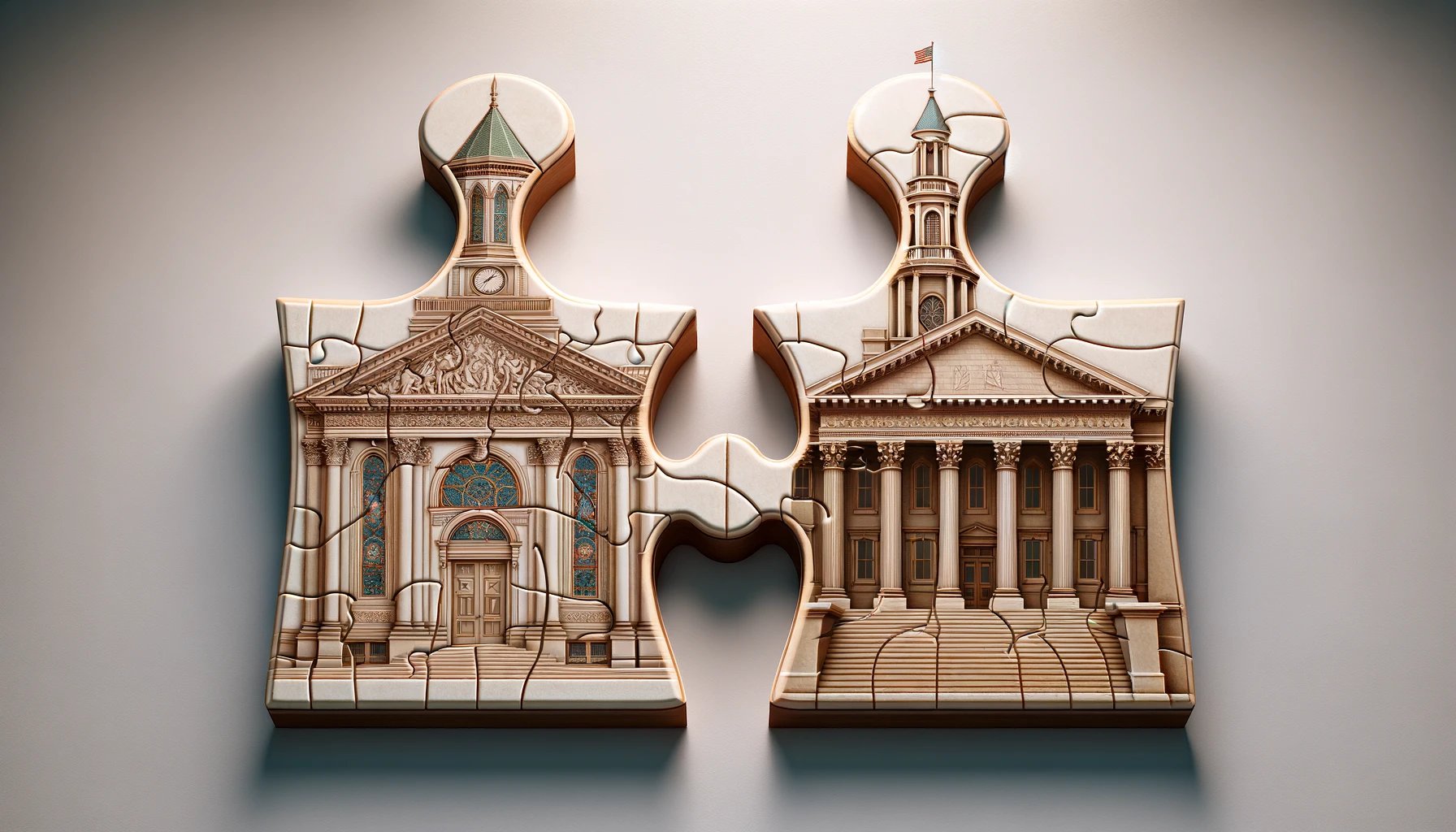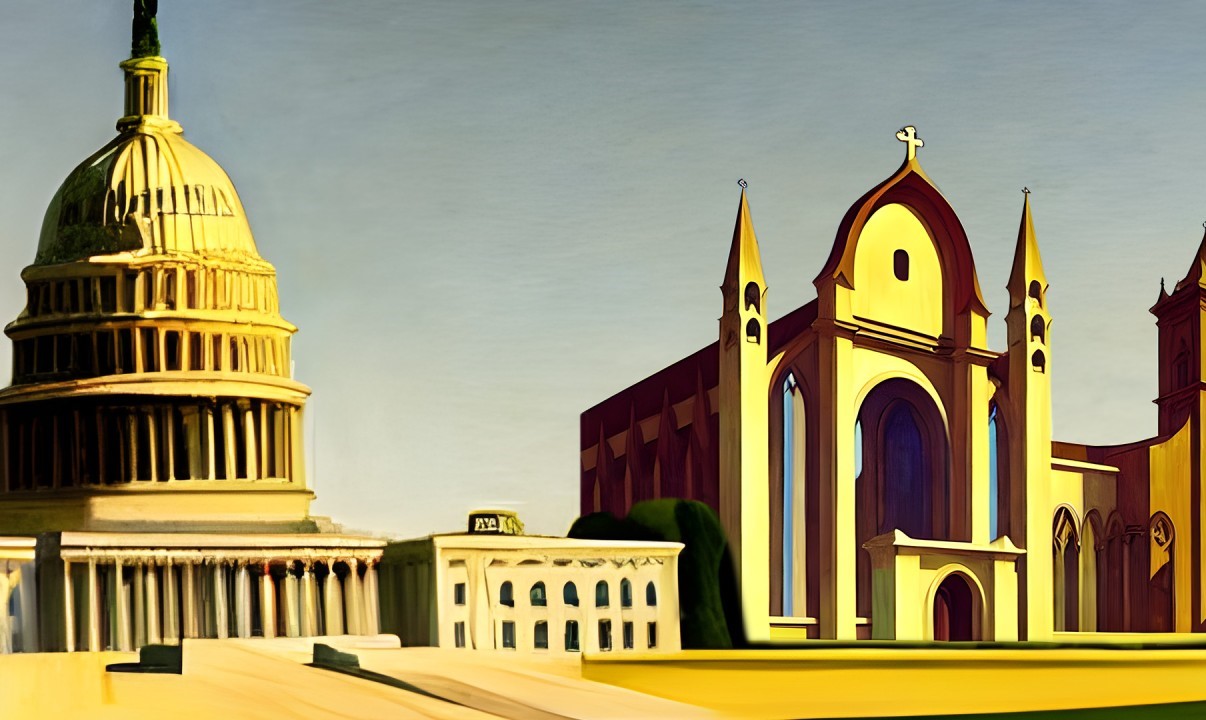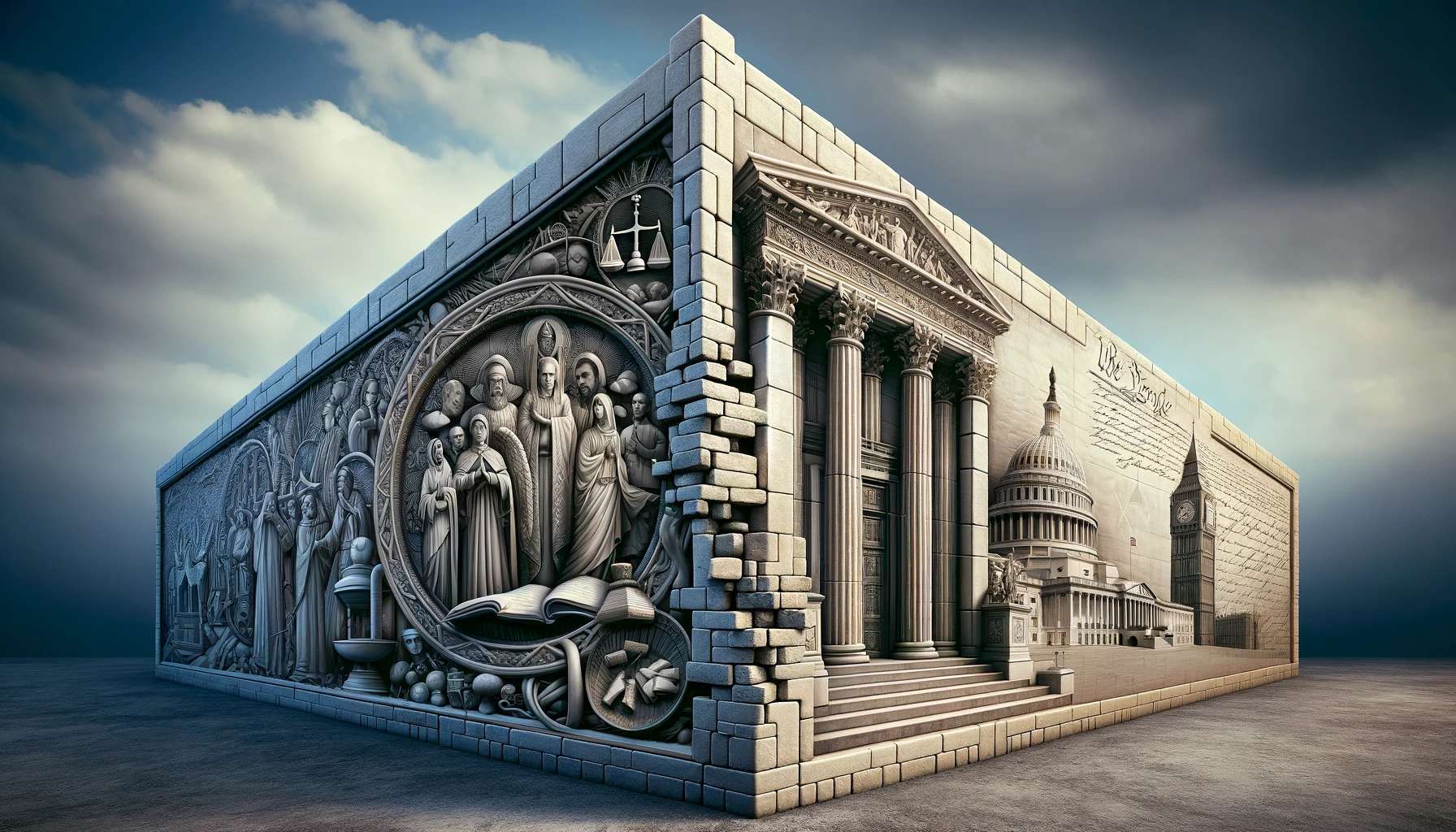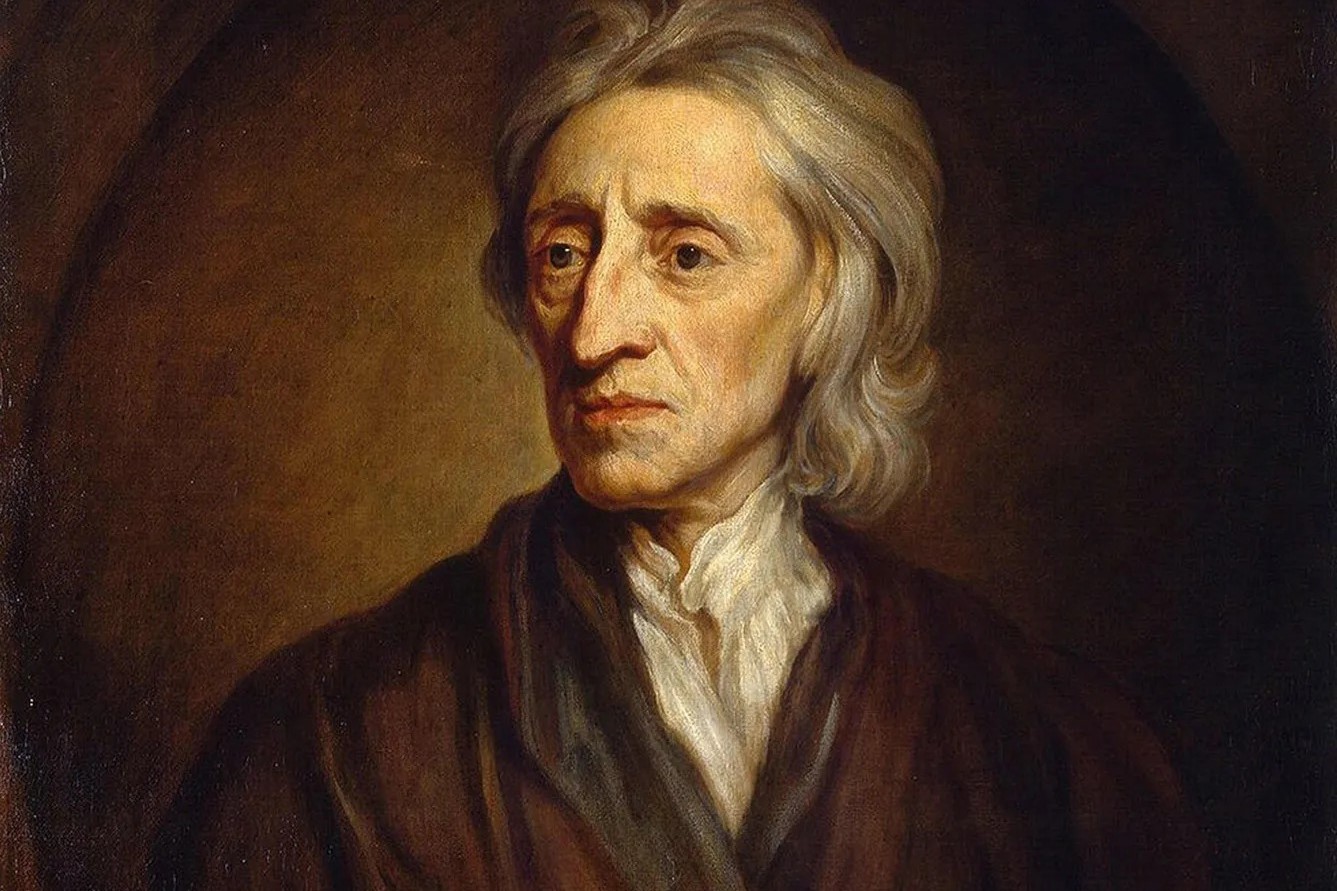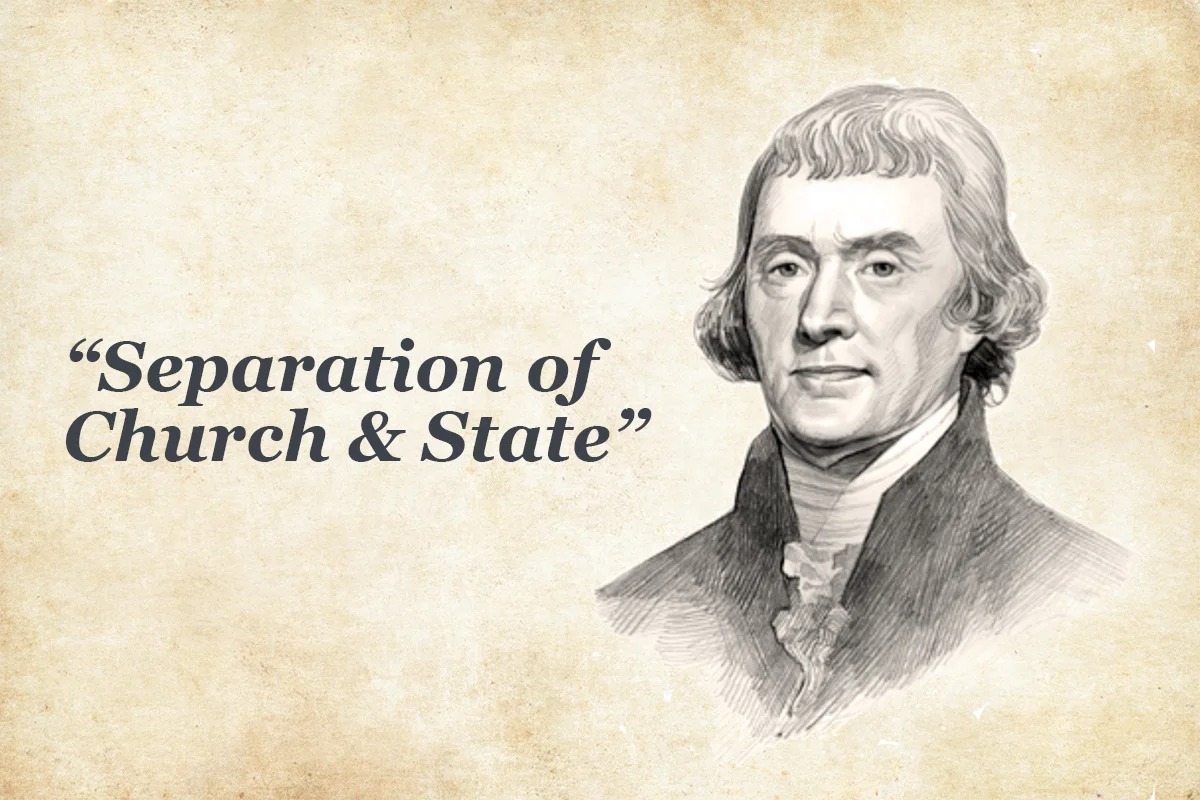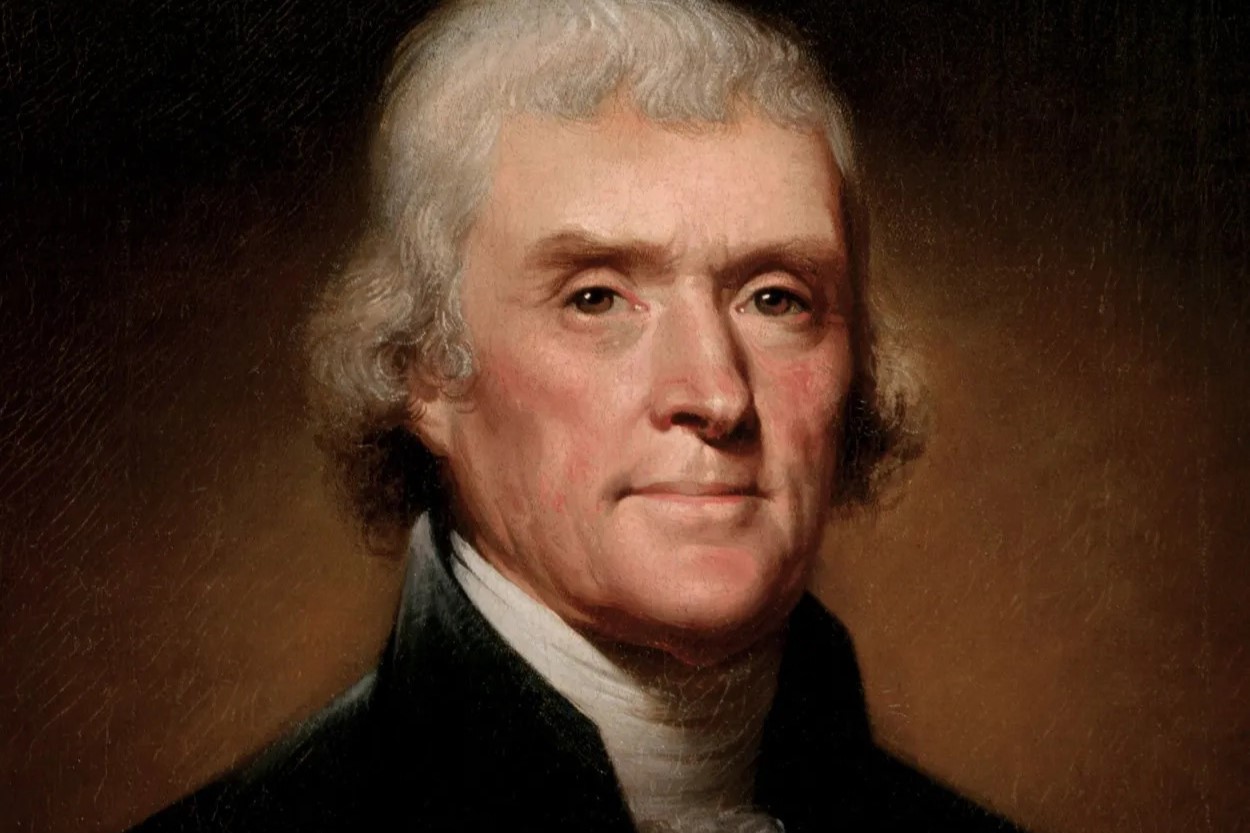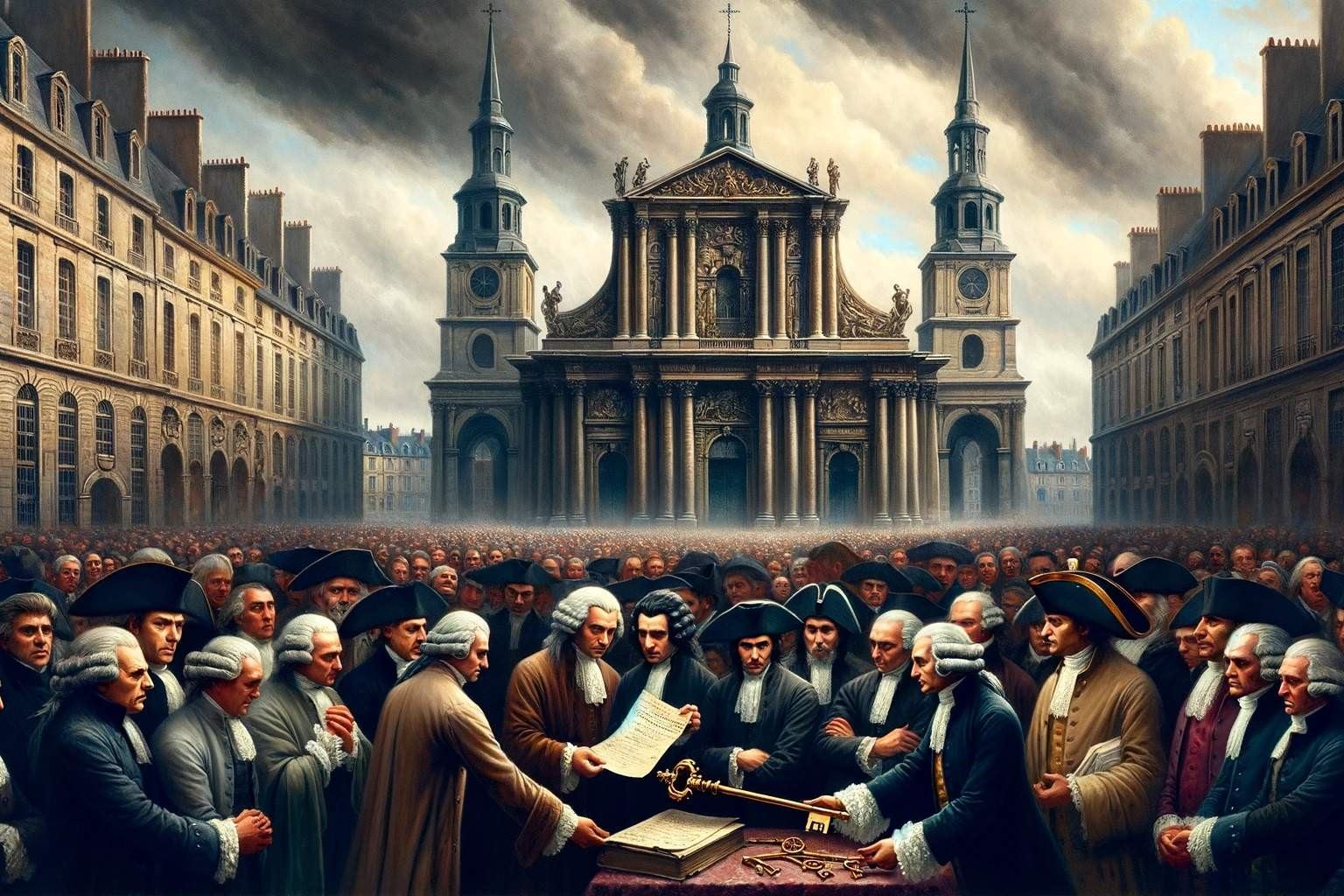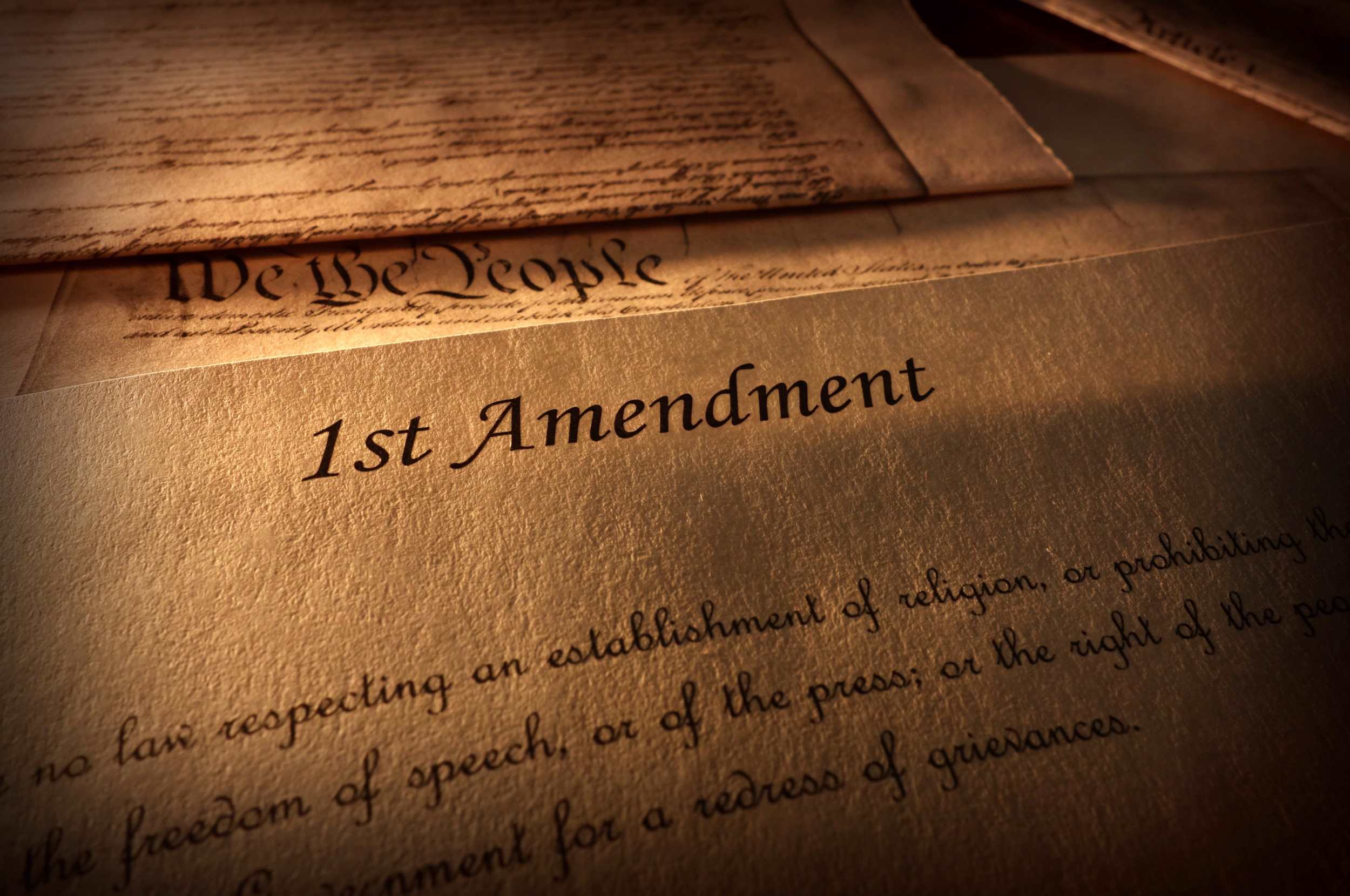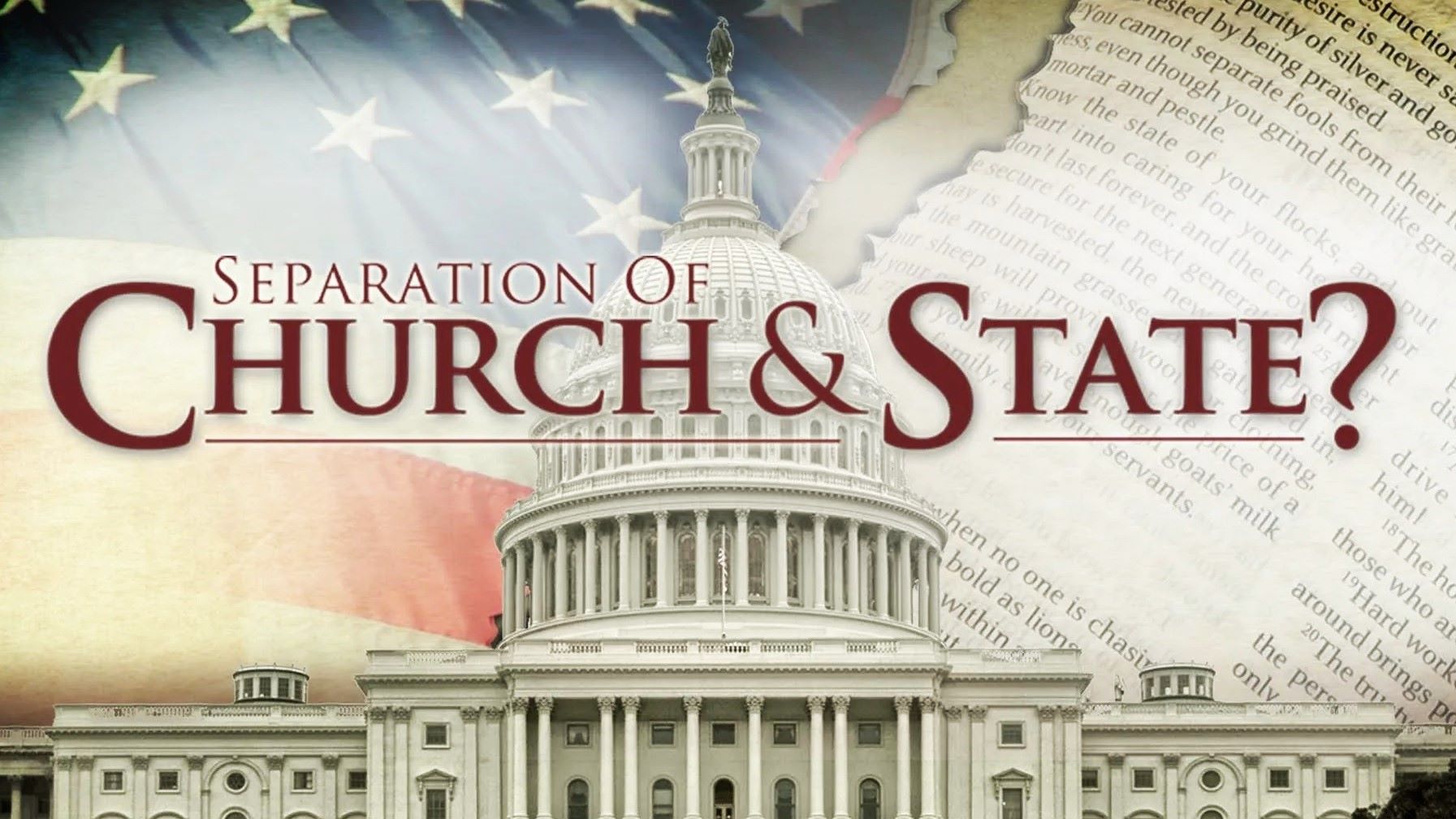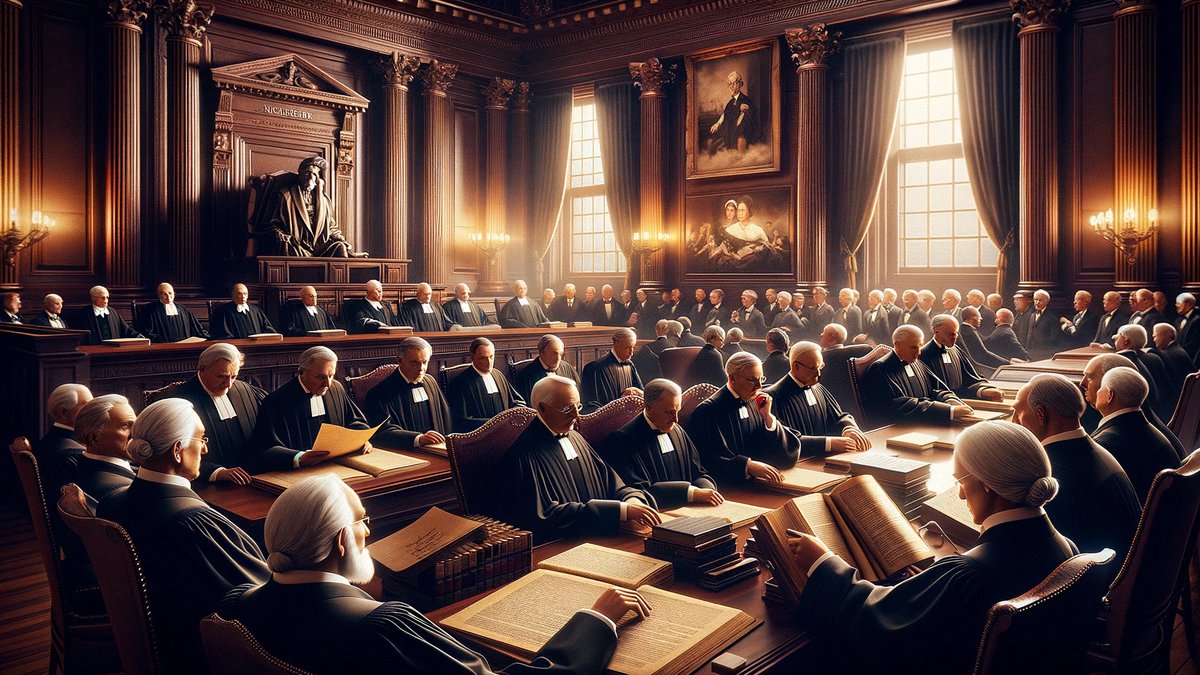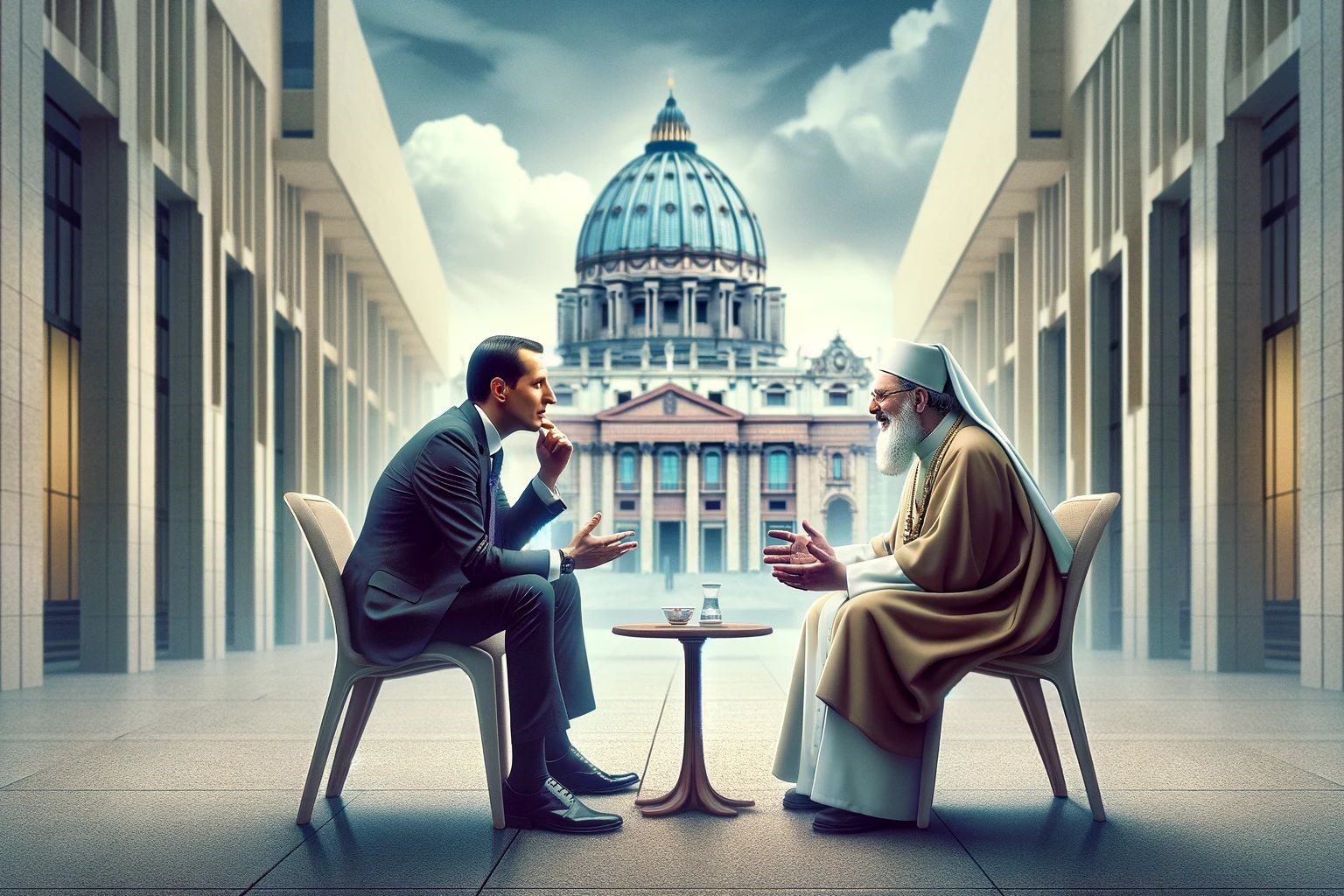Home>Theology and Spirituality>Support For The Separation Of Church And State Resulted In What?


Theology and Spirituality
Support For The Separation Of Church And State Resulted In What?
Published: February 11, 2024
Peter Smith, Editorial Director at Christian.net, combines deep insights into faith, politics, and culture to lead content creation that resonates widely. Awarded for his contributions to religious discourse, he previously headed a major organization for religious communicators, enhancing dialogue on faith's societal impacts.
Learn how the support for the separation of church and state has impacted theology and spirituality. Explore the resulting changes and implications.
(Many of the links in this article redirect to a specific reviewed product. Your purchase of these products through affiliate links helps to generate commission for Christian.net, at no extra cost. Learn more)
Table of Contents
Introduction
The separation of church and state is a fundamental principle that has significantly shaped the course of history, politics, and religion. This concept, rooted in the idea of maintaining a distinct boundary between religious institutions and governmental entities, has been a subject of profound debate and advocacy. The implications of this separation have had far-reaching effects on societies, governance, and individual freedoms.
Throughout the centuries, the relationship between church and state has been a complex and often contentious issue. The intertwining of religious authority with political power has led to both remarkable achievements and profound conflicts. The concept of separating the influence of the church from the operations of the state has been a pivotal development in the evolution of modern societies.
The historical context of the separation of church and state is rich and diverse, encompassing a wide array of philosophical, political, and religious movements. From the Enlightenment era to the struggles for religious freedom, the call for this separation has been a driving force behind significant social and political transformations.
As we delve into the historical background and explore the support for the separation of church and state, it becomes evident that this principle has been a catalyst for progress and a safeguard for individual liberties. The impact of this separation has reverberated across nations, shaping legal frameworks, cultural norms, and the dynamics of governance.
In this article, we will embark on a journey through the annals of history to unravel the profound implications of the separation of church and state. We will examine the influential voices that have championed this cause and the transformative effects it has had on societies. By delving into this topic, we can gain a deeper understanding of the complexities and significance of this enduring principle.
Historical Background of Church and State
The historical relationship between church and state has been characterized by a complex interplay of power, influence, and authority. In ancient civilizations, the fusion of religious and political institutions was a common phenomenon, with rulers often assuming divine status and religious leaders wielding significant political sway. This amalgamation of spiritual and temporal power laid the groundwork for the entwined nature of church and state throughout history.
During the medieval period, the Catholic Church held immense authority, exerting influence over matters of governance, law, and societal norms. The concept of the "divine right of kings" further solidified the close alliance between religious and political realms, as monarchs claimed their legitimacy from God, thereby intertwining their rule with religious sanction.
The Protestant Reformation in the 16th century brought about a seismic shift in the dynamics of church-state relations. The emergence of various Protestant denominations challenged the hegemony of the Catholic Church and led to the fragmentation of religious authority across Europe. This schism not only altered the religious landscape but also had profound implications for the relationship between church and state, as rulers grappled with the religious diversity within their realms.
The Enlightenment era ushered in a new wave of philosophical and intellectual thought, advocating for the separation of church and state. Thinkers such as John Locke and Voltaire championed the idea of religious tolerance and the need to curtail the influence of religious institutions on governmental affairs. Their writings and advocacy laid the groundwork for the eventual enshrinement of this principle in modern governance.
The historical backdrop of church-state relations is marked by a series of pivotal events, including the Peace of Westphalia in 1648, which established the principle of cuius regio, eius religio ("whose realm, his religion"), granting rulers the authority to determine the religious affiliation of their territories. This treaty, along with subsequent developments such as the American and French Revolutions, set the stage for the formal separation of church and state in many nations.
The historical evolution of church-state relations provides a nuanced understanding of the complexities and transformations that have shaped modern societies. This backdrop sets the stage for comprehending the support for the separation of church and state and the enduring impact of this foundational principle.
The historical context of church and state relations serves as a crucial lens through which we can analyze the evolution of governance, religious freedoms, and the dynamics of power throughout the ages. This rich tapestry of historical developments has laid the groundwork for the advocacy and realization of the separation of church and state, marking a significant turning point in the annals of human civilization.
Support for the Separation of Church and State
The advocacy for the separation of church and state has been championed by a diverse array of individuals, movements, and philosophical currents throughout history. This support stems from a myriad of compelling reasons, each underpinned by a deep-seated belief in the necessity of delineating the spheres of religious authority and governmental power.
Philosophical Foundations
Enlightenment philosophers such as John Locke and Baron de Montesquieu laid the groundwork for the intellectual underpinnings of the separation of church and state. Their writings emphasized the importance of individual liberties, religious tolerance, and the need to prevent religious institutions from unduly influencing political affairs. These philosophical tenets formed the bedrock of the arguments in favor of this separation, resonating with the ideals of freedom, reason, and the autonomy of governance.
Religious Freedom
The call for the separation of church and state has been intrinsically linked to the pursuit of religious freedom. Advocates of this principle have underscored the imperative of safeguarding individuals' rights to practice their faith without state interference or coercion. The ability to worship according to one's beliefs, free from governmental imposition, has been a driving force behind the support for this separation, resonating deeply with the principles of liberty and conscience.
Mitigation of Religious Conflict
Historically, the intertwining of religious and political authority has often been a catalyst for conflict and persecution. The advocacy for the separation of church and state has sought to mitigate such tensions by creating a neutral public sphere where diverse religious beliefs can coexist without the specter of state-sponsored favoritism or discrimination. This approach aims to foster social harmony and reduce the potential for religious strife, thereby promoting a more inclusive and peaceful societal fabric.
Preservation of Secular Governance
Supporters of the separation of church and state have underscored the importance of preserving the secular nature of governance. By delineating the realms of religious and political authority, this principle aims to uphold the impartiality of the state in matters of faith, ensuring that public policies are formulated based on rational deliberation, inclusive of diverse perspectives, and free from religious dogma or imposition.
Protection of Individual Autonomy
Central to the support for the separation of church and state is the protection of individual autonomy. This principle seeks to safeguard individuals from the imposition of religious doctrines in the public sphere, allowing them the freedom to make personal choices independent of religious dictates. By upholding this separation, advocates aim to create an environment where individuals can exercise their rights and freedoms without undue influence from religious institutions intertwined with the state.
The multifaceted support for the separation of church and state reflects a profound commitment to upholding fundamental freedoms, fostering social harmony, and preserving the integrity of governance. This advocacy has been instrumental in shaping the legal frameworks and societal norms that underpin modern democracies, underscoring the enduring relevance and significance of this foundational principle.
Impact of the Separation of Church and State
The impact of the separation of church and state has reverberated across societies, governance, and individual freedoms, yielding profound transformations and enduring implications. This foundational principle has left an indelible mark on the fabric of modern civilization, shaping legal frameworks, cultural norms, and the dynamics of governance in multifaceted ways.
Preservation of Religious Pluralism
One of the pivotal impacts of the separation of church and state has been the preservation and fostering of religious pluralism. By delineating the spheres of religious authority and governmental power, this principle has created a neutral public sphere where diverse religious beliefs can coexist without the specter of state-sponsored favoritism or discrimination. This approach has been instrumental in nurturing an environment where individuals can freely practice their faith, fostering a rich tapestry of religious diversity within societies.
Safeguarding Individual Liberties
The separation of church and state has played a pivotal role in safeguarding individual liberties, particularly in the realm of religious freedom. By curbing the influence of religious institutions on governmental affairs, this principle has ensured that individuals have the autonomy to practice their faith without state interference or coercion. This impact has been instrumental in upholding the fundamental rights of individuals to worship according to their beliefs, free from the imposition of religious doctrines intertwined with the state.
Promotion of Secular Governance
The impact of this separation has been instrumental in promoting secular governance, ensuring that public policies are formulated based on rational deliberation and inclusive of diverse perspectives. By upholding the impartiality of the state in matters of faith, this principle has mitigated the potential for religious dogma to influence public policies, thereby fostering an environment where governance is guided by reasoned discourse and the collective welfare of society.
Mitigation of Religious Conflict
The separation of church and state has had a profound impact on mitigating religious conflict by creating a neutral public sphere where diverse religious beliefs can coexist harmoniously. This impact has been instrumental in fostering social harmony and reducing the potential for religious strife, thereby contributing to the stability and cohesion of societies.
Empowerment of Individual Autonomy
Central to the impact of the separation of church and state is the empowerment of individual autonomy. This principle has created an environment where individuals can make personal choices independent of religious dictates, thereby upholding their rights and freedoms without undue influence from religious institutions intertwined with the state.
The enduring impact of the separation of church and state underscores its pivotal role in shaping the dynamics of governance, fostering religious pluralism, and safeguarding individual liberties. This foundational principle continues to resonate as a cornerstone of modern democracies, leaving an indelible imprint on the evolution of societies and the preservation of fundamental freedoms.
Conclusion
In conclusion, the separation of church and state stands as a pivotal cornerstone of modern governance, embodying the enduring principles of religious freedom, individual autonomy, and the impartiality of the state. Throughout history, this foundational principle has been championed by diverse voices advocating for the delineation of religious authority from governmental affairs. From the philosophical tenets of the Enlightenment to the pursuit of religious tolerance and the mitigation of religious conflict, the support for this separation has been underpinned by a profound commitment to upholding fundamental freedoms and fostering social harmony.
The historical backdrop of church-state relations provides a nuanced understanding of the complexities and transformations that have shaped modern societies. The evolution of this relationship has been marked by pivotal events, philosophical currents, and social movements that have laid the groundwork for the advocacy and realization of the separation of church and state. This rich tapestry of historical developments has set the stage for the enduring impact of this foundational principle on the fabric of modern civilization.
The impact of the separation of church and state has reverberated across societies, governance, and individual freedoms, yielding profound transformations and enduring implications. This principle has played a pivotal role in preserving religious pluralism, safeguarding individual liberties, promoting secular governance, mitigating religious conflict, and empowering individual autonomy. Its enduring impact underscores its pivotal role in shaping the dynamics of governance, fostering religious pluralism, and safeguarding individual liberties.
As we reflect on the historical context, the multifaceted support for this separation, and its profound impact, it becomes evident that this principle continues to resonate as a cornerstone of modern democracies. The enduring relevance and significance of the separation of church and state underscore its pivotal role in the evolution of societies and the preservation of fundamental freedoms. It stands as a testament to the enduring pursuit of liberty, equality, and the harmonious coexistence of diverse beliefs within the tapestry of human civilization.
